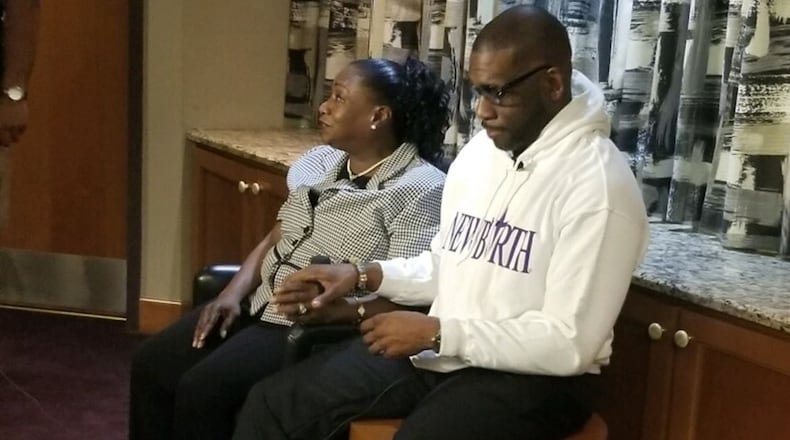At first, Dorothy Malcome thought the letter in her hand was a hoax.
The letter, from New Birth Missionary Baptist Church and RIP Medical Debt, informed her that $3,000 in medical debt had been wiped clean.
Lord, is this real?
“I jumped up and down and started praising God for this letter,” said Malcome, 58, who is disabled. “Other than my mother and God, no one has ever done anything for me like this. Oh, it was such a blessing.”
In all, nearly $1.3 million in medical debt was canceled for 1,200 people living in the 30038 ZIP code in South DeKalb, which includes Stonecrest and Lithonia.
New Birth is located in Stonecrest.
Malcome, who has two adult sons and is on Medicaid, had racked up the medical bills during emergency room visits to the hospital.
She ticked off a list of ailments that include a hernia, spinal issues, chronic obstructive pulmonary disease, gout and knee problems.
The bills only added to her family’s financial pressures.
The Lithonia resident is helping take care of some of her 13 grandchildren. Her rent recently increased to $850 a month. Together, she and her husband, who is also disabled, have an income of roughly $1,300 a month.
“We are blessed to be a blessing and this effort has truly helped families start the new year without the stress, worry and concern that often accompanies looming medical bills and calls from debt collectors,” New Birth’s Senior Pastor Jamal Harrison Bryant said in a press release. “When a medical issue occurs, the subsequent bills can wreak havoc on a family’s finances, leading some down a path of bad credit or left with reservations about even seeking medical attention for fear of the costs for services.”
Related: New Birth promises church's rebirth
The average amount of medical debt resolved was $1,065. The Georgia megachurch launched its medical debt relief efforts in December, just in time for the holidays and the start of the new year.
New Birth partnered with the New York-based nonprofit RIP Medical Debt, which was founded in 2014 by two former debt collectors and takes donations from individual donors, faith-based organizations and other organizations and buys medical debt at a deeply reduced discount.
One woman aided through this effort had $150 in medical debt that she didn’t know existed, according to Bryant.
The cost of medical care is a big concern among U.S. residents and often causes financial stress, according to a 2019 article in the American Journal of Public Health.
Even with insurance, 26% of all Americans said health care expenses have taken a serious toll on family finances, according to a 2016 NPR article.
New Birth is not the only church that has stepped up to help.
Churches often know the needs of their congregations and surrounding communities.
For instance, Oak Ridge Unitarian Universalist Church partnered with RIP Medical Debt and erased $4.2 million in medical debt for families in three Tennessee counties.
In Birmingham, Saint Luke's Episcopal Church helped cancel $8 million in medical debt for residents in 14 counties in Alabama.
And other nonprofits also get involved.
Atlanta Hawks point guard Trae Young, through his Trae Young Foundation, partnered with the same medical debt erasure agency to cancel more than $1 million in medical debts for hundreds of Atlanta residents.
Young donated $10,000 to RIP Medical Debt.
Daniel Lempert, director of communications for RIP Medical Debt, said generally 30% of hospitals sell their past due accounts on the secondary debt market, often because they are too difficult to collect. Reasons can include a person not receiving the notice, a person ignoring efforts to collect or unable to pay.
“RIP helps those people who are least likely to be able to pay,” Lempert said, adding that there are requirements. The longer the debt stays on the secondary market, the cheaper it becomes for RIP to buy, basically pennies on the dollar. “Instead of collecting, we cancel them,” he said.
Those who qualify are people who earn less than two times the federal poverty level (which varies by state and family size), those in financial hardship and people facing insolvency, according to RIP.
For instance, every $1 donated to RIP releases about $100 in debt.
And that is good news for people like Malcome.
“I was not expecting this at all,” she said. “I thank them and I love them so much. Now I have a New Birth family.”
About the Author
Keep Reading
The Latest
Featured



